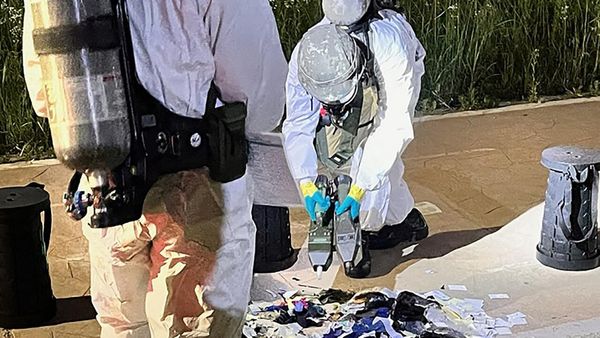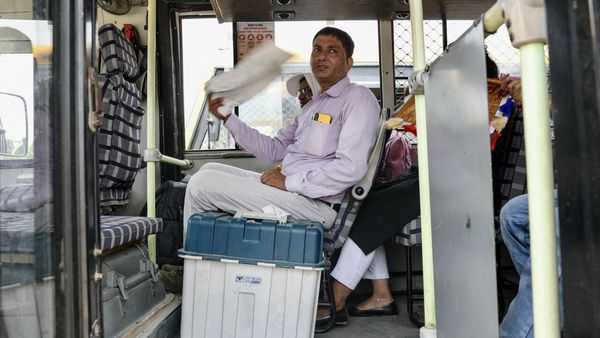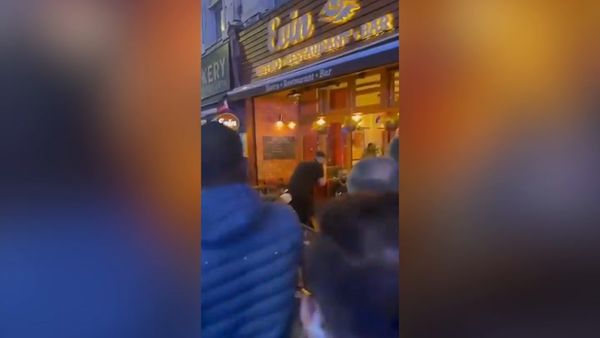
The military takeover in Libreville is the latest in a series of power grabs in the region since 2020
A group of senior military officials in Gabon say they have seized power from the government just moments after results from its general election were declared.
- SEE MORE Africa’s tectonic shift: how the continent is splitting apart
- SEE MORE What role is Russia playing in the Niger coup?
- SEE MORE Niger coup: is this the end of French influence in Africa?
The incumbent president Ali Bongo emerged as the landslide winner in the election, handing him a third term as the head of the West African nation. But a group of 12 soldiers appeared on television on Wednesday morning to announce that they had taken control and were “annulling the results” of Saturday’s election. They later confirmed they had put President Bongo “under house arrest”, said the BBC.
Why has the military taken over in Gabon?
The Bongo family “has controlled the country for a half-century”, said The New York Times (NYT), with Ali Bongo succeeding his father, Omar, in 2009. That elongated rule has led to “loud opposition claims of rigging” in this and past elections, and many residents of Gabon’s capital Libreville were “fearing trouble” during voting.
The soldiers who announced the coup, who claimed to be from the Committee of Transition and the Restoration of Institutions and said they represent security and defence forces, have shut the borders to Gabon. In their broadcast, they said they had “decided to defend peace by putting an end to the current regime”.
If successful, the Gabon coup will be the eighth in West and Central Africa since 2020. The region has “made strides to shed its reputation as a ‘coup belt’” in recent years, said Reuters, but “persistent insecurity and corruption” leave the door open to military power grabs.
Which other countries have had coups?
After they gained independence from colonial rulers in the 1950s, a number of African nations found that military coups were a “regular occurrence”, wrote Peter Mwai at the BBC. But a period of “relative democratic stability” then set in, with an “average of around four [coups] a year between 1960 and 2000”. There was even a “noticeable decline” in the 2000s but in recent years there have been “indications they are on the rise”.
Since 2020, coups have taken place in Mali, Chad, Guinea, Burkina Faso, Niger and now Gabon. There has been a “domino effect of political uprisings” across these nations, said Ali Rogin at PBS. Some “foreign influences” led to the coups, she added, but each country’s “internal politics and security” as well as the “effects they have on each other” are major causes.
What are the contributing factors?
West Africa is “facing various challenges that hinder its development and stability”, wrote Komlan Avoulete at the US Foreign Policy Research Institute. These include “political instability, terrorism, pseudo-democratic elections, climate change, youth unemployment”, but there is also “widespread resentment” towards powerful nations in the West, he suggested.
Many of these countries are former colonies of France, and “the memory of French colonialism, defined by brutal military campaigns, forced labour, widespread repression, cultural erasure, racial segregation and forced displacement, is still very much alive in the Sahel region”, said Folahanmi Aina, from the Royal United Services Institute, for Al Jazeera.
That feeling also means “many Africans are turning to Russia as a more reliable ally”, said Avoulete. There is a “clear intention” from Russia to “further its interests on the continent”.
But Russia’s influence in the region is “always overstated”, Kamissa Camara, senior adviser for Africa at the United States Institute of Peace, told PBS. While there is “definitely a Russian propaganda at play”, and France’s presence in domestic politics has made it an “easy culprit”, the security threat from terrorist groups has become an “overarching issue” across all of these countries.
What will stop the increase in coups?
There is a perception from populations that politicians “don’t care about them”, Carlos García Rivero wrote for The Conversation. If that continues it “will invite the military to continue overthrowing civil governments” and “legitimise their intervention” with increasing public support. A combination of “military, political and economic solutions” needs to be found to prevent further occurrences of coups, he added.
Instilling effective democracy and replacing “artificial states” built as “profit machines for European rulers” with governments that “respond effectively to citizens’ needs” will quell coups, argued Camara and Susan Stigant at the US Institute of Peace. In addition, addressing the needs of young Africans who aspire to “better jobs, greater security, and more responsive governments” will prevent many of them from being recruited into military and extremist groups.
Governments also need to better “mediate conflicts” and instil a “multilateral effort” with international partners to curb “insurgent and extremist violence”, they suggested. Government security forces have often responded to conflicts with “blunt force against civilians” that has “multiplied popular anger and more violence”, inevitably weakening the “legitimacy and popular support” of the state.






